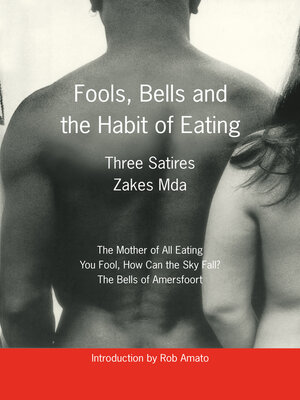
Sign up to save your library
With an OverDrive account, you can save your favorite libraries for at-a-glance information about availability. Find out more about OverDrive accounts.
Find this title in Libby, the library reading app by OverDrive.



Search for a digital library with this title
Title found at these libraries:
| Library Name | Distance |
|---|---|
| Loading... |
Cupidity, corruption and conciliation are the themes of the three plays in this collection from one of South Africa's leading writes. The Mother of all Eating, a one-hander, with its central character a corrupt Lesotho official, is a grinding satire on materialism in which the protagonist gets his come-uppance. You Fool, How Can the Sky Fall? is an unbridled study in grotesquerie, reflecting a belief, traceable throughout Mda's work, that government by those who inherit a revolution is almost inevitably, in the first decade or two, hijacked by the smart operators. The Bells of Amersfoort, with its graphic portrayal of the isolation imposed by exile, picks up on the themes of the other two plays but adds to them the concept of 'healing', both of the soul and of the land, in a lyrical work which holds out more hope than do its companions in this volume. The plays are introduced by Rob Amato, who directed much of Mda's earlier work.|Cupidity, corruption and conciliation are the themes of the three plays in this collection from one of South Africa's leading writes. The Mother of all Eating, a one-hander, with its central character a corrupt Lesotho official, is a grinding satire on materialism in which the protagonist gets his come-uppance. You Fool, How Can the Sky Fall? is an unbridled study in grotesquerie, reflecting a belief, traceable throughout Mda's work, that government by those who inherit a revolution is almost inevitably, in the first decade or two, hijacked by the smart operators. The Bells of Amersfoort, with its graphic portrayal of the isolation imposed by exile, picks up on the themes of the other two plays but adds to them the concept of 'healing', both of the soul and of the land, in a lyrical work which holds out more hope than do its companions in this volume. The plays are introduced by Rob Amato, who directed much of Mda's earlier work.







